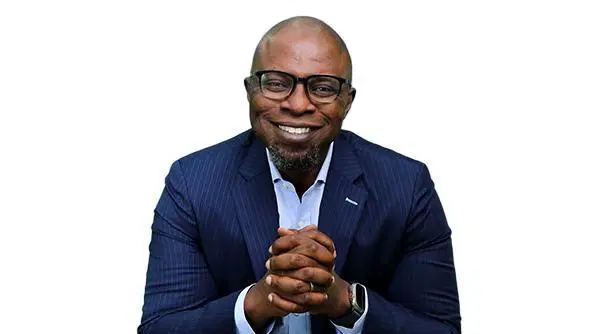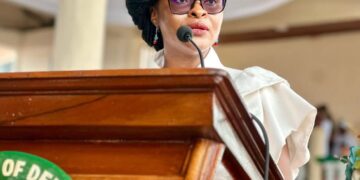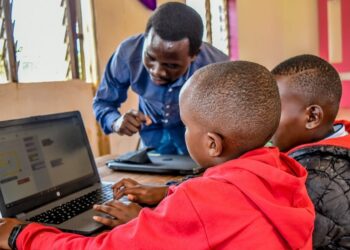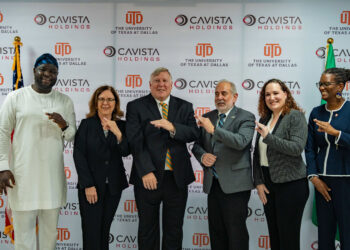
Tertiary education is a key lever for building thriving economies. According to the World Bank, Tertiary Education is instrumental in fostering growth, reducing poverty, and boosting shared prosperity. In 2017, a World Bank report, Sharing Higher Education’s Promise Beyond the Few in Sub-Saharan Africa, stated that while more people have been educated in Africa, there remains a huge divide between elites and the rest of the African population. This has led to stalled productivity and economic growth.
In Nigeria, the situation is particularly dire. Quartz Africa reported in 2017, that only one in four Nigerians applying for university get a spot. With Nigeria’s population projected to reach 392 million in 2050, becoming the world’s fourth most populous country, the compounded effect of inaccessible tertiary education does not bode well for a country with a median age of 17.2 years.
A small percentage of Nigerian students have mitigated this challenge by seeking tertiary education abroad or enrolling at some of the newer, more expensive private universities. However, with inflation at 34% and the Nigerian Naira among the worst-performing currencies globally, the number of people who can afford to travel abroad or pay high tuition fees at private universities is on the decline.
Sim Shagaya clearly understood the implications of this widening chasm barring access to tertiary education. He spent over two decades building companies that solve everyday problems. He had also spent the last five years of his life using technology to improve learning outcomes for primary and secondary school students across Nigeria through his company, uLesson. He felt compelled to marshal his unique insights, skills, network, and reputation to address some of the most pressing challenges facing access to quality tertiary education in the nation. This led him to build Miva Open University, a fully digital university, wholly-owned by the uLesson Group.
Launched in May 2023, Miva Open University has grown to over 2,700 students from across Nigeria and the diaspora. Miva has over 200 faculty members and has delivered almost 2,000 learning modules. It offers a world-class curriculum built by a stellar academic team with real-world experience applying knowledge to global challenges. Miva offers several bachelor’s programmes such as Computer Science, Business Management, Economics, Public Health, Software Engineering, Cybersecurity and more. It recently introduced an MBA programme that commences in September.
This fast-growing institution is on the path to transforming how Nigerians access and acquire tertiary education by employing a mix of student-centric, practical, innovative, and economically viable solutions.
A fully flexible, digital e-Learning experience
Miva Open University is classified as an ODL. This acronym stands for Open and Distance Learning. Open and Distance Learning (ODL) is a system of providing distance education opportunities in ways that remove barriers to access, such as finances, prior learning, age, social, work or family commitments, disability, etc.
ODL has been recognized by the United Nations Educational, Cultural and Scientific Organization (UNESCO) as “a force contributing to social and economic development” and “an accepted and indispensable part of the main-stream of educational systems in both developed and developing countries.”
Importantly, the Honourable Minister of Education recently released a policy statement that degrees obtained via Open and Distance Learning (ODL) system of education in Nigeria from accredited institutions have the same and equal value with the ones issued at regular/conventional university system.
By harnessing the power of technology, Miva Open University ensures that tertiary education is available to anyone, anywhere and anytime.
From seeking admission to registration, taking classes, submitting assignments, and taking assessments, students only require an internet-enabled device. Miva delivers world-class education without requiring learners to move from their locations or stop doing their daily jobs and routines. It is only during examinations that, due to statutory requirements, students need to go to a registered examination centre to take their exams.
Even in this case, Miva has partnered with several testing centres to ensure that no student needs to leave their city to take their exams. It is no wonder that Miva’s student body includes active civil servants, healthcare professionals, content creators, software developers, professional footballers, politicians, and other working-class individuals.
Genuine sensitivity to the prevailing economic conditions
Miva Open University was purposefully designed to allow people to earn a living while learning. Everything from the course load to the ability to defer examinations takes into consideration the fact that sometimes, people need to prioritise their work or other personal commitments over education and they should not be penalised for it. Recently, Miva took economic inclusion a step further with two new initiatives.
The first was the introduction of an initial payment of 50,000 Naira that allows a student to enrol, access e-books and learning material, and take their classes and assessments with the payment of full tuition only required before the start of exams. This ensures that more people can access quality education without breaking the bank.
The second initiative, called Grandfather Pricing, is an ironclad commitment that Miva makes to every student. Whatever fees they pay to enter the university will remain unchanged throughout the duration of their programme. Consequently, students gain a sense of security which allows them to plan their complete financial obligations to the university without worrying about the effect of increments (frequent price increases have, unfortunately, become a part of Nigerians’ daily lives).
Dedicated, personalised learner’s support
To ensure that each student has the required support to thrive academically, Miva assigns each student to their own dedicated cheerleader, coach, and customer service representative. Known as Success Advisors, these highly knowledgeable and supportive staff of the university are tasked with ensuring that each student has all the information, tools, motivation and support they need during the course of their programme at the university. The success advisors are available throughout the day and can be reached without the need to schedule an appointment.
Students at Miva have come to rely on them for important updates, reminders for deadlines, to troubleshoot issues accessing their learning content and even when they need someone to talk to about the challenges of maintaining a work-life balance.
Additionally, Miva offers its students office hours. These are times selected by students to hold individual conversations with their professors/lecturers. They use these times to ask questions they couldn’t ask in class, discuss their programme of study, graduation requirements and even internship opportunities.
Providing inspiration and closing the knowledge gap
One of the challenges faced by students is learning how to apply their knowledge to real-world situations. This has led Miva to create a unique Masterclass series available to all its students. These Masterclasses provide students with an exceptional opportunity to learn from and engage with industry experts and accomplished professionals bridging the gap between academic knowledge and real-life.
Prominent speakers in the Miva Masterclass series include Shola Akinlade (OON), CEO and Co-founder Paystack, Andrew David Adejo (OON), Permanent Secretary, Federal Ministry of Education, Uyi Akpata, Regional Senior Partner at PWC, Akintunde Oyebode, Honourable Commissioner for Finance, Ekiti State, and Tola Odeyemi, Chief Executive Officer of the Nigerian Postal Service (NIPOST).
As Sim Shagaya’s Miva Open University continues its rapid growth, its unique combination of technology-driven tertiary education, a genuine sensitivity to the economic situation of Nigerians, and dedicated personalised support puts the institution in prime position to transform the access and quality of tertiary education for millions of Nigerians in the decades to come.


















































































 EduTimes Africa, a product of Education Times Africa, is a magazine publication that aims to lend its support to close the yawning gap in Africa's educational development.
EduTimes Africa, a product of Education Times Africa, is a magazine publication that aims to lend its support to close the yawning gap in Africa's educational development.